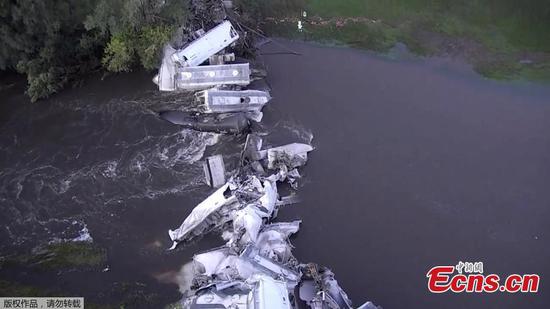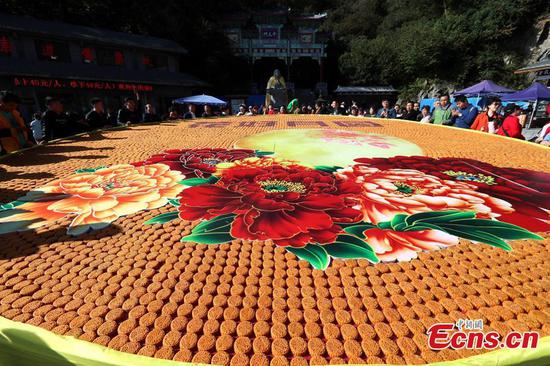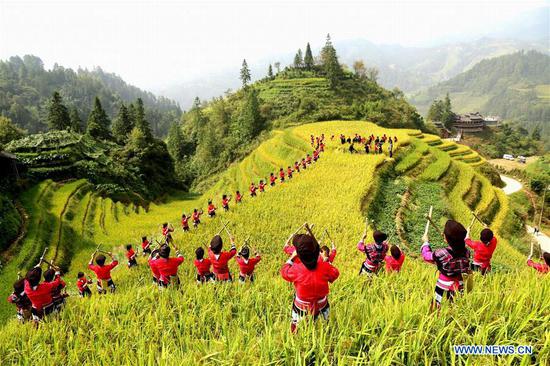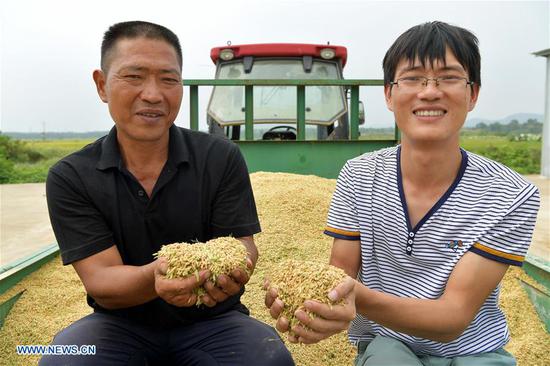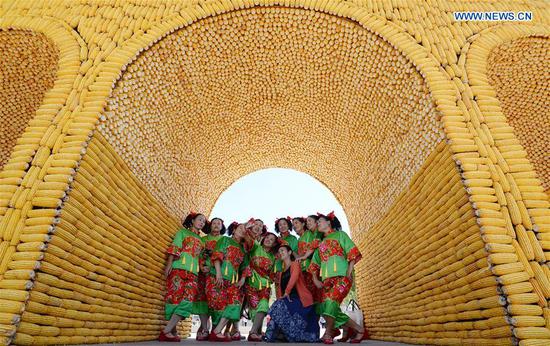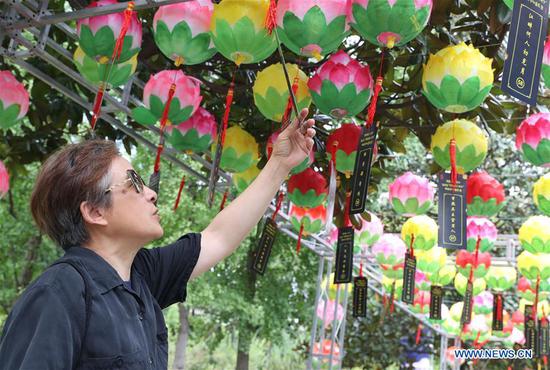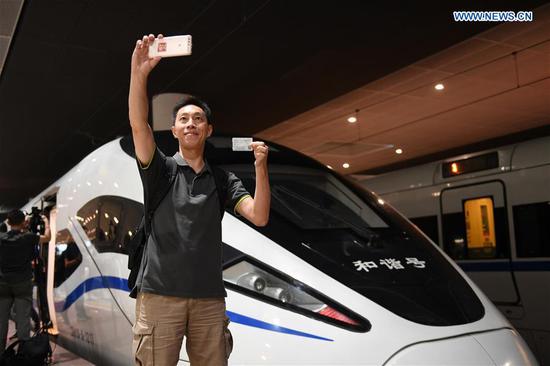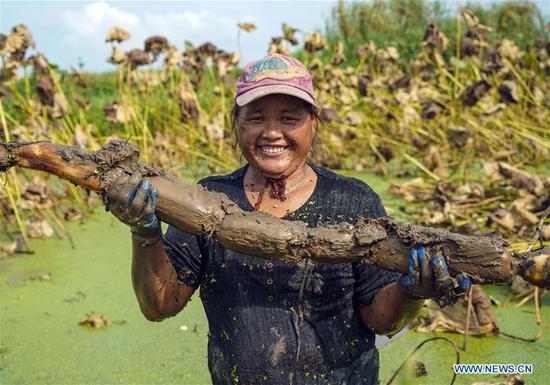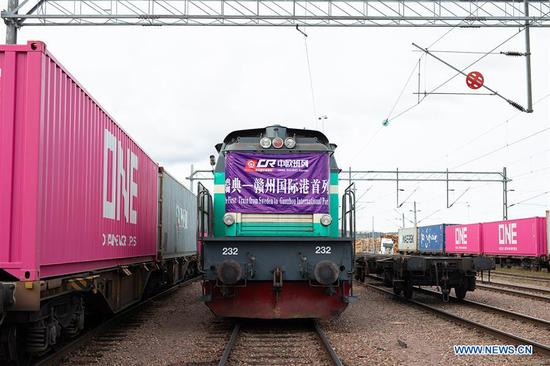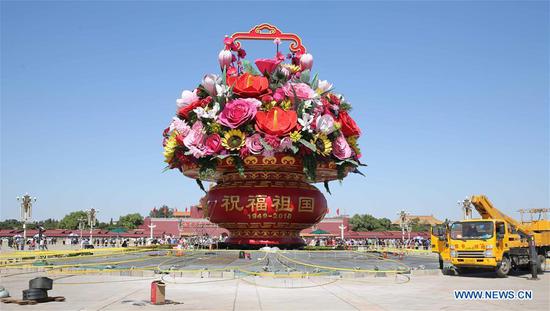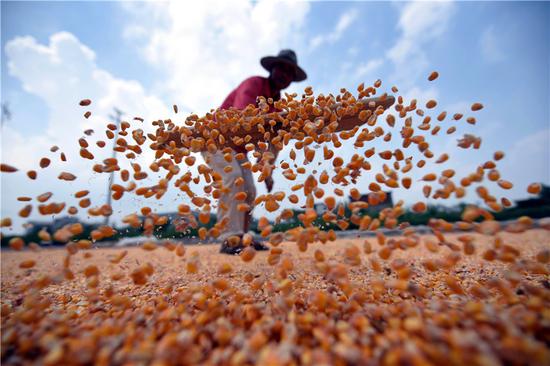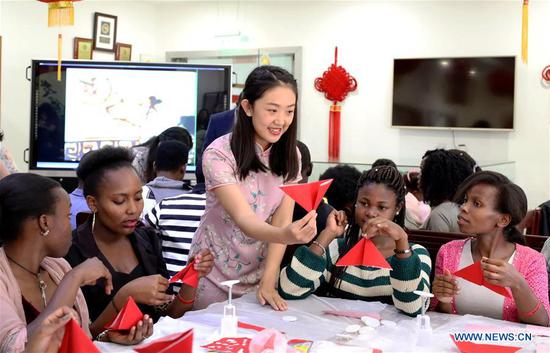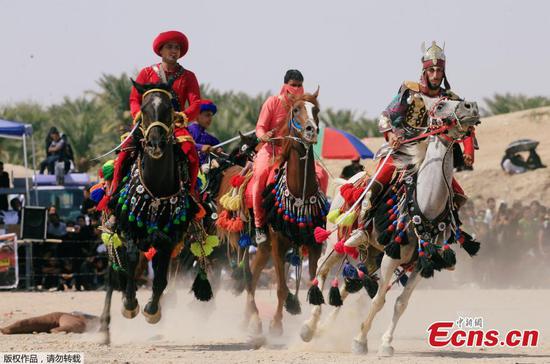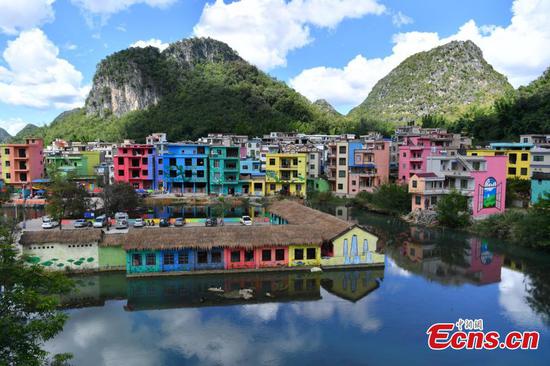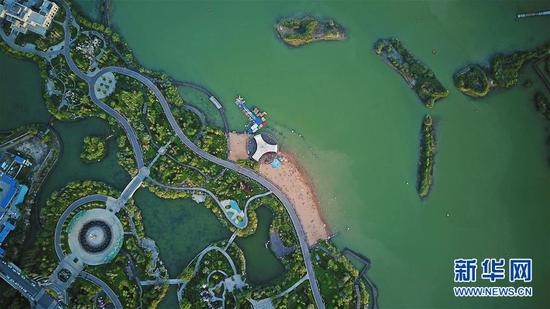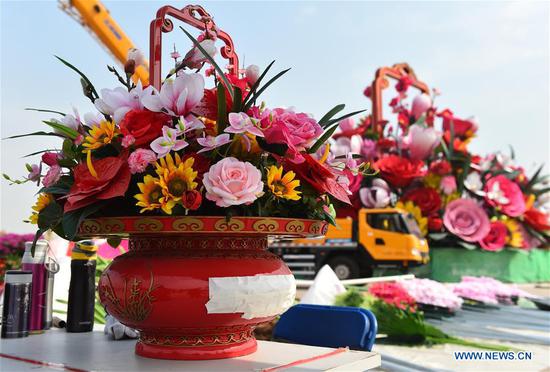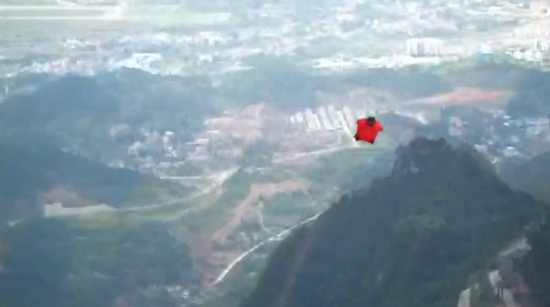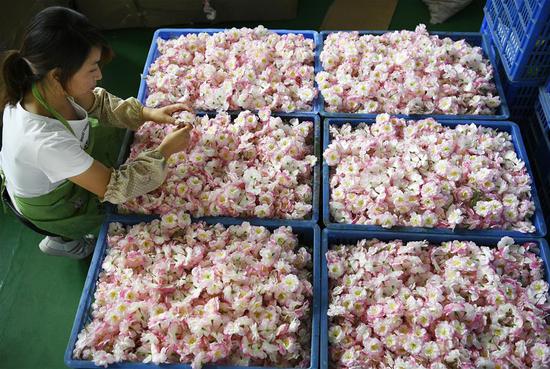
A worker sorts artificial flowers at a factory in Guyuan City of Xihaigu, northwest China's Ningxia Hui Autonomous Region, Aug. 29, 2018. (Xinhua/Guo Xulei)
ROADS TOWARD WELLBEING
Rural residents in mountainous Xihaigu in the past could rarely travel far due to a poor transport infrastructure, which adversely affected employment, education and healthcare.
"When I was in primary school, many pupils in villages had to get up at 4 a.m. and travel 3 km or 4 km to get to the school. When it snowed, roads on the mountains would be blocked. I would not see my classmates for many days," recalled Ma Hanwen, the resident from Xihaigu.
The primary school in Ma's village only provided education for lower grade students. Those who wanted higher education had to go to schools in township seats much further away.
"The dropout rate was extremely high, especially for girls. Their parents preferred them to stay at home and do farm work," Ma said.
In 2004, Wu Wenxue started to develop a celery farm in Xiji, one of the most impoverished counties in Xihaigu. The poor transportation network bothered him.
"Paths in the fields were very bumpy. Trucks couldn't reach the fields, so people carted celery from the fields to load into trucks," Wu recalled. "It was not only the village paths that were bad, but road conditions linking the villages and county seats were also very poor."
"It would take more than two hours to pass through a section of 20-km-long bumpy road in the mountain. Drivers were not willing to come to Xiji."
In December 2016, a 46.5-km expressway linking Xiji and Guyuan opened. Trucks loaded with Wu's celery have been shuttled from Xiji and neighboring provinces and regions ever since.
"Freshness is money. Upgraded roads save time and create more profit for me," Wu said.
Guyuan has invested 21 billion yuan to build and renovate roads over the past five years, with all township seats and villages now having good roads.









